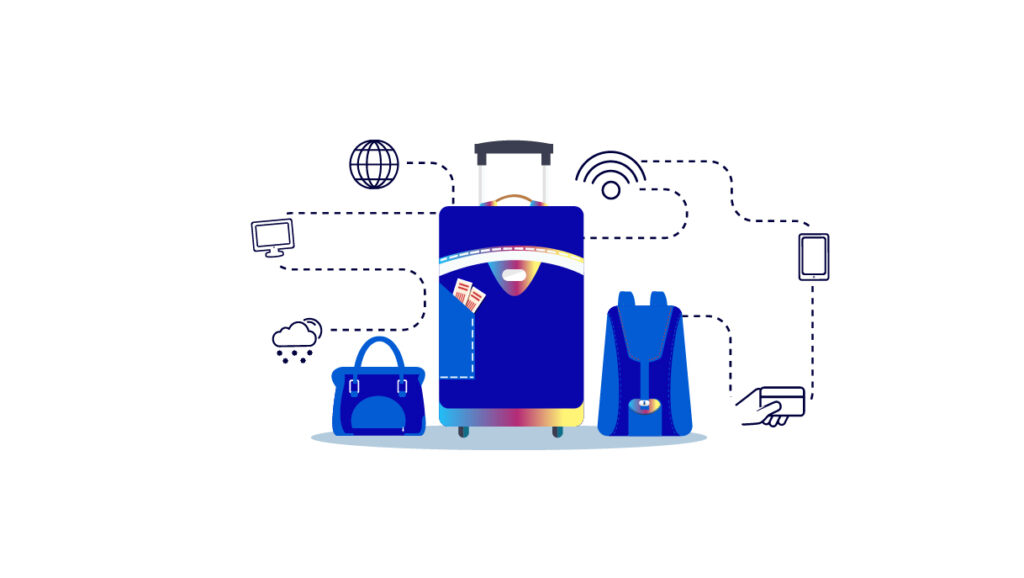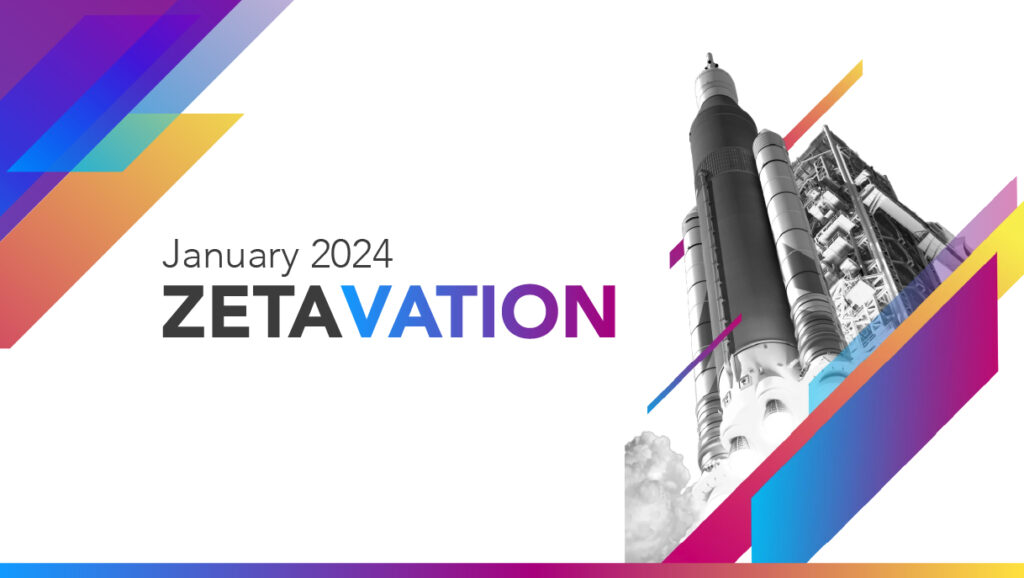
Using Intelligence to Drive Customer Growth in Travel and Hospitality
If you feel like everyone is on vacation right now, you might be right. Despite cost-of-living increases and runaway inflation, the travel industry is experiencing a post-COVID boom. Travel insurance company Allianz Partners analyzed thousands of trip itineraries for 2023 and found that American travel to Europe will jump 600% over last year. Furthermore, a recent report from the World Travel and Tourism Council and Trip.com found that almost one third (31%) of travelers plan to spend more on travel this year than they did in 2022.
These massive increases in global travel are yet another far-reaching effect of the pandemic. The term “revenge travel” was recently coined to explain the huge influx of people that want to make up for time and experiences lost during lockdowns.
This might all sound great for travel companies, and it is, but customer perceptions around travel are changing just as quickly. The travel industry isn’t as predictable as it once was. Last year, we spotted a trend in the Zeta Data Cloud that showed growth in “bleisure” (business and leisure) travel, which has continued to grow from late 2022 into 2023. This means that someone traveling for work might extend their stay for pleasure. Moreover, people are traveling more frequently during the off-season, further complicating forecasting trend analysis for marketers.
All of these changes result in an increasingly complex travel research and booking cycle. There are no rules anymore that marketers can rely on. The pre-trip planning process is changing by the day, not to mention in-trip research and post-trip follow-ups.
To succeed, marketers need to be able to capitalize on in-the-minute intent by catering to consumers at all times through multiple channels. It’s also increasingly important to be able to isolate and act on customer intent and understand the purpose underpinning travel plans. These signals are the key to unlocking sustained growth in the coming months and years.
All of these new problems can be solved with better intelligence. Not just “data,” but baked-in intelligence and AI that is at the heart of decision-making processes.
In this post, we’ll explore three ways that you can leverage your data to better understand and isolate customer intent, attract and retain high-value travelers, and create experiences that have your customers wanderlusting for their next trip once they’re back home.
Start By Getting Closer to the Data
It’s time to revisit how technology and AI can be leveraged to drive growth and delight customers. According to a recent study by Forrester Consulting, commissioned by Zeta, almost half of marketers don’t trust their tech stacks. Marketers report that fragmented technology leads to:
- Manual effort required to analyze data for actionable insights (57%)
- Challenges testing and optimizing campaigns (52%)
- Difficulty tracking and observing customer preferences (52%)
- Difficulty building holistic customer profiles (49%)
If you can’t trust your tech, you can’t rely on your data. And if you can’t rely on your data, you’re flying blind. With total travel spending in the US alone expected to reach 1.2 trillion dollars by 2025, it’s important that marketers are in a position to track campaign performance and show meaningful ROI.
By combining first- and third-party data, you can unlock incredibly detailed insights on your customers: who books directly and who uses a third-party agency, who travels for business and when, who values sustainability, who purchases service and seat upgrades, etc. All of these factors give you a clearer picture of where your revenue comes from and how your campaigns are performing. It also shows you how much market share you have in specific travel categories.
Increasing loyalty and the spend of current clients is one of the fastest ways to grow revenue. It is also critical to be able to identify and target key personas that demonstrate increased spending behaviors in travel-related activities and ancillaries. The key to doing so is having access to real-time data that can gauge and isolate customer intent during the pre-travel planning stages and follow up with them post-travel to nurture the relationship. By leveraging cross-channel engagement combined with insights from other travel behaviors, you can proactively connect with clients before they book a trip to ensure you are their first choice.
By adopting technology that helps unify your data and augment it with additional demographic, psychographic, and behavioral information, you can achieve a deeper understanding of your clients, your competition, and where you should be allocating your resources to maximize profit.
There are three themes to consider when thinking about how to better leverage your data: Identity, Intelligence, and Activation:
Identity
In most cases, about 96% of people who visit your website are unknown. Identifying these people is critical so that you can begin building a relationship as soon as possible. By crafting bespoke and delightful booking experiences for your customers, you can entice them to book with you versus through a third party. After all, each click, itinerary, booking, and upgrade, is data that can be used to personalize their next experience.
Even brands with loyalty programs can’t identify all the customers that visit their site or use their app. However, Zeta is helping solve the identity problem by using deterministic attribution and probabilistic matching to connect non-deterministic data, such as credit card tokens and names to known customer profiles.
Brands can now decipher that multiple disconnected past sessions or bookings were actually the same person on different devices or channels. This brings identity full circle; connecting interactions from all channels across the travel journey which has a dramatic effect on ROI.
Zeta’s ID graph, which contains profiles on over 235+ million Americans, enables you to identify previously unknown visitors and augment your first-party data with demographic and behavioral data. This creates a persistent customer ID that can be used throughout the pre-trip, in-trip, and post-trip lifecycle to create smarter, more relevant campaigns and promotions.
Intelligence
Data without intelligence is useless. There’s simply too much incoming information to parse through manually. You need a platform with AI at its core to pull out relevant insights and important information.
You can’t rely on outdated strategies, such as media mix modeling, to develop your marketing strategy any longer. You need to adapt and leverage real-time techniques like deterministic incremental attribution to optimize marketing and media budgets. AI helps democratize that intelligence without the need for bloated analytics and data science teams.
Zeta helps you harness the power of AI to segment your customer base into actionable groups using proprietary propensity scores, combined with factors like family size, amenity preferences, and average trip cost. By identifying your high value travelers, you can better deploy your resources to attract the right people while decreasing costs.
Activation
The final piece of the puzzle is activation. All of the data and intelligence in the world isn’t going to make a difference if you can’t act on it in real time, across channels. Understanding which channels are important to each individual traveler will not only increase your response rates, but also allow you to become more efficient in your spend.
Adopting a platform like Zeta that combines the capabilities of a CDP, ESP, and DSP with a proprietary data cloud empowers you to create truly individualized experiences that span every conceivable channel—and keep customers coming back for more.
The Benefits of Customer Intelligence
When you bring Identity, Intelligence, and Activation together you can unlock some truly transformational benefits that will help you increase traveler satisfaction while navigating changing behavior and shifting market conditions.
Cater to Individual Traveler Needs
Travelers today aren’t just seeking getaways; they’re chasing experiences tailored to their unique needs and preferences. The rise of sustainable travel is a great example. More than a passing trend, eco-conscious travel is now a deeply-held value for many consumers, informing their choices from transportation to accommodation. These changing trends are an open invitation to marketers to analyze and understand the vast data at their disposal to create booking and travel experiences that make customers feel valued.
Baking AI and intelligence into your marketing strategies is the key to crafting these potent, individualized experiences. It’s no longer enough to provide generic offers or broad-strokes campaigns. Travelers appreciate when businesses anticipate their needs, providing recommendations that align with their personal values and beliefs. By deploying technology that can gather and process these signals, marketers can curate offerings that resonate on a personal level, fostering deeper loyalty and trust.
By prioritizing your customer’s needs you can also attract high-value travelers that are willing to pay top dollar for that personal touch. Creating audiences based on average trip cost, upgrade frequency, luxury amenities, and premium transport highlights the customers that drive most of your revenue. Offering this subset premium benefits and a white-glove experience helps increase loyalty and cement your brand reputation.
When a brand makes a customer feel like more than a number, they’re more likely to choose your service and advocate for it. Marketers that better leverage their data by letting AI sift through the noise will position themselves to win.
Customer Example: Zeta’s client Visit California merged their first-party data with proprietary insights and customized intent signals from the Zeta Data Cloud to significantly improve targeting and acquisition rates. By catering to individual traveler needs, Visit California was able to increase campaign click rates by 766% and achieve a 27% lift in trip bookings.
Isolate Intent and Create “Always On” Personalization
For many people, travel no longer fits neatly into holiday calendars. In the post-COVID world and with the rise of remote work, people have more flexibility to travel when and how they want.
This presents a paradigm shift in how marketers traditionally think about travel communications, loyalty, and promotions. With the boundaries of traditional travel getting blurrier by the day, there’s a pressing need for marketers to be more agile and intuitive in their strategy and communication.
Here’s a great example. A traveler that is opted into an email program will either be considering travel, have an intention to travel, or are actively planning their travel. Over time, their behaviors can change and pivot from one to the other. During these critical consideration stages, it’s important to deliver engaging, individualized messaging that is both timely and relevant to their current interest or intention. Zeta solves this problem by leveraging content recommendations, behavior signals, and engagement scores to determine where the traveler is in the travel lifecycle, as well as their passion points for content messaging. By merging first-party data with third-party signals to create a holistic view of their customers, marketers can better understand where their customers are in their journey.
In lieu of generic holiday newsletters or one-size-fits-all promotions, marketers can now leverage AI to understand and isolate a traveler’s specific intent as they bounce between business, leisure, and holiday travel. Diving deep into individual intent signals such as searches, clicks, rewards balances, upgrades, and itinerary, can help marketers craft cross-channel communications that shift depending on behavior.
Marketers need to shift to an “always on” mindset rather than thinking about personalization as something that is added to a message or campaign. This means continuously and proactively understanding potential travelers, even before they begin planning. By integrating intelligence into campaign creation and decision making, marketers can fundamentally change how they think about communication throughout the travel lifecycle and meet customers where they’re at, regardless of intent.
Customer Example: Zeta’s client Tourism Ireland leveraged Zeta’s Marketing Platform and AI to build a hyper-personalized, auto-generated newsletter based on lifecycle stage and intent to travel. The newsletter has access to over 40 available campaign types which it mixes and matches to drive visits to the website and travel bookings with third-party providers (a key metric for tourist boards). Always-on optimization and testing also enabled continuous iterative improvements that yielded a 93% lift in open rate and a 35% lift in click rate.
Individualize the Travel Planning Process
The are six basic stages of the travel journey — Inspiration, Planning and Booking, Arrival, Stay, Departure, and Post-Travel Follow Up. In the past, most marketers focused primarily on booking. Their goal was simply to generate more leads and more revenue. While this goal hasn’t necessarily changed, marketers now play a much larger role in the travel journey, from wanderlust through post-travel communications. By placing themselves in every stage of the journey, marketers can provide content and recommendations that feel handpicked and offer more personalized experiences.
Marketers can individualize the pre-trip and in-trip planning process through leveraging AI to glean insights about how each traveler moves through these stages. For example, let’s say a particular traveler appreciates a detailed property tour before committing to a booking. Armed with this information, a marketer can programmatically offer an interactive virtual tour of a hotel along with a per-night discount to encourage a conversion. Personal touches like this demonstrate a deep understanding of that traveler’s preferences and create both surprise and delight throughout the planning process.
The ultimate goal is to leverage data to capitalize on intent. AI can help marketers transform the routine travel preparation process into an engaging, personalized journey in and of itself. When travelers feel that every step is curated just for them, their loyalty and enthusiasm for the brand will only grow stronger.
Customer Example: A major national hotel brand wanted to enhance their market presence and boost direct bookings, recognizing the importance of reaching a broader set of potential customers. Zeta’s media team collaborated with the company to leverage their past guest data, creating a targeted look-a-like segment. Zeta also provided the team with actionable insights to help craft precise messaging for their audiences. As a result of these combined efforts, the company saw a 40% lift in travel prospecting and a significant increase in ROAS.
Zeta’s AI-Powered Marketing Cloud Helps Travel and Hospitality Companies Drive Customer Growth
Zeta is the only platform composed of a CDP, ESP, DSP, and the largest private, unwalled, data cloud which gives marketers the tools they need to win. The Zeta Marketing Platform has been designed for marketers’ needs with the unique flexibility to wrap around and augment your tech stack, providing speed to intelligence, deeper analytics, and activation to deliver greater return on investment.
With Zeta’s modern, schemaless architecture, you can seamlessly ingest and reconcile data from anywhere in your technology stack, enabling you to build a unified view of customer behavior that can be enriched with Zeta’s proprietary Data Cloud.
But it doesn’t stop there. Zeta offers flexible data connectors that put you in the driver’s seat, allowing you to take advantage of our pre-built connectors, or create custom integrations that align with your unique needs. This level of control ensures that your integration efforts are truly elevating your marketing ecosystem.
Whether Zeta is the single platform environment removing the need for multiple point solutions, or it’s connecting the dots to extract more value from current tech investments, the AI-powered Zeta Marketing Platform is at the forefront of the next generation of marketing technology.
Want to see Zeta in action?




